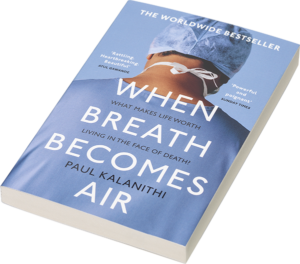
The finitude of the human body can make working in healthcare seem defeating.
Bones demineralize; muscles weaken; neuron firing speed slows to a snail’s pace. When I focus on the inevitability of bodily decomposition, I begin to question the meaning of my daily work. Why do I spend my days assisting people in the pursuit of health when it is such an elusive goal? Why do I dedicate most of my waking hours to this difficult-to-attain objective?
When I ask myself these questions, I can’t help but realize the importance of a multi-dimensional approach to health. In nursing school, the professors stressed how nursing is a unique discipline of healthcare. It looks at the patient as a multifaceted individual, made up of physical, spiritual, mental, and social parts. A lot of my daily work revolves around the physical aspect of health. I find the most meaning in my work when I attend to the other health components in my patients. The small things – asking a dizzy patient if she needs some orange juice, inquiring about a child’s favorite subject in school, grabbing a pillow for a patient who must lay down for twenty minutes – that touch people the most.
Treating patients as worthy of servitude has weighty influence.
We are all finite. Our bodies are constantly decomposing and each of us will face death in the future. The more we accept this, the more at peace our lives will be. If we focus too much on physical health, hopelessness seems to creep up and overwhelm us in dangerous ways. Attending to the emotional, mental, and spiritual sides of people has incredible importance when looked at from a broad perspective.
Seeing health from a 10,000-foot perspective forces one to grapple with the topics of life and death quite directly. Hard questions come to my mind, such as “How do I live life well?” and “How to do I interpret the certainty of death while I live?” These are huge discussions, and I’m not sure I can go much further than the very surface in a blog. I do feel, however, that it is the duty of medical professionals to seriously consider how death affects life and specifically, the pursuit of health. One of the worst things a healthcare worker can do, I think, is to frame health as the end-all, be-all for patients. When someone approaches the end of his or her life, he or she needs to feel at peace even as the muscles waste away, the infection spreads, and the bowels shut down completely.
When Breath Becomes Air
I recently read the book, When Breath Becomes Air, by Paul Kalanithi. Paul writes his life story, from the time he grew up to when he went to medical school for neuros urgery to when he was diagnosed with progressive lung cancer. Paul’s writing is insightful and eye opening, written from the perspective of first, the medical provider, and then the patient. It’s a compelling and thoughtful challenge to see health in its proper context. Amid his treatment, Paul writes that, “The fact of death is unsettling. Yet there is no other way to live” (Kalanithi, p. 132). By accepting the truth that he was heading towards death one way or another, Paul was able to live more fully. “Until I actually die, I am still living.”
urgery to when he was diagnosed with progressive lung cancer. Paul’s writing is insightful and eye opening, written from the perspective of first, the medical provider, and then the patient. It’s a compelling and thoughtful challenge to see health in its proper context. Amid his treatment, Paul writes that, “The fact of death is unsettling. Yet there is no other way to live” (Kalanithi, p. 132). By accepting the truth that he was heading towards death one way or another, Paul was able to live more fully. “Until I actually die, I am still living.”
The author spends some time lamenting the decline of his body, and I found that to be a powerful chapter. Before the progression of his lung cancer, he would run half marathons, yet by the time he was writing his book, he struggled to sit up for thirty minutes at a time. I can imagine the frustration that physical collapse can bring. Although it was nothing near the experience of fighting cancer, my days after knee surgery were annoyingly sedentary.
The weeks of therapy to build up range of motion and strength were excruciatingly slow. It’s human nature to want to be better, stronger, faster than yesterday. But, as Paul’s cancerous cells wreaked havoc on his body and made even the most basic activities burdensome, it seems valid to feel lost and low in spirit. Paul’s own lament, though, is short. Instead, his words seem to veer towards finding purpose and meaning from the intangible aspects of life rather than the physical abilities his body can (or cannot) perform. He found life and meaning in things like loved one’s company and inspirational literature.
The ending of When Breath Becomes Air reemphasizes the message of the entire book, in my opinion. Paul never finished the book that he started. He died from cancer in 2015 before the pages were complete. The epilogue is written by his wife, Lucy. She writes that Paul’s choice to accept death’s inevitability allowed him to joyfully experience the last moments of life. Lucy would sit and listen to Paul read aloud from great literary works in the hospital, noting that these “simple moments swelled with grace and beauty” (p. 218). Paul’s cancer journey made him shift the mindset of an aspiring neurosurgeon, excited to help the next patient to optimal health and run the next half marathon, to a weak cancer patient, trapped in a weak body yet content with whatever was to come.
Acceptance
My birthday is coming and I think that has caused me to contemplate the brevity of life and the certainty of death more, too. As I’m reminded I’m another year older, I think more deeply about how I spend my days as a nurse. I want to tend to the many dimensions of my patients so they realize life is more than physical health. The body will never be an infallible source of strength, beauty, or perfection. Death is coming, but acceptance of that fact can help us age with grace, live in the moment, and be grateful for each breath.











Write a comment: